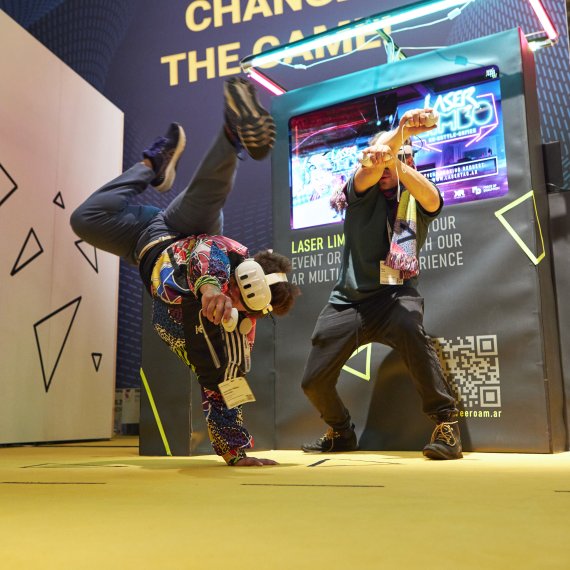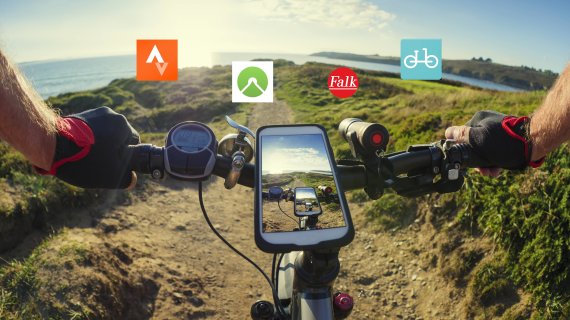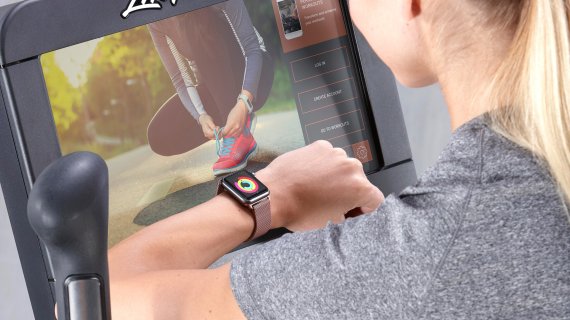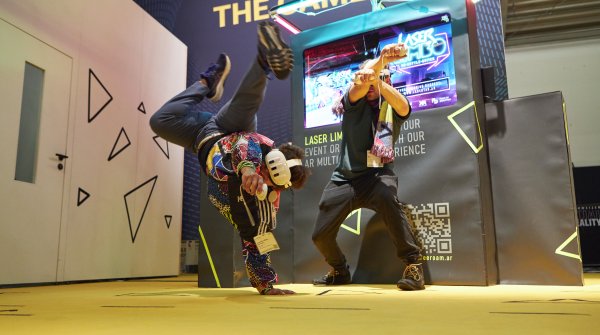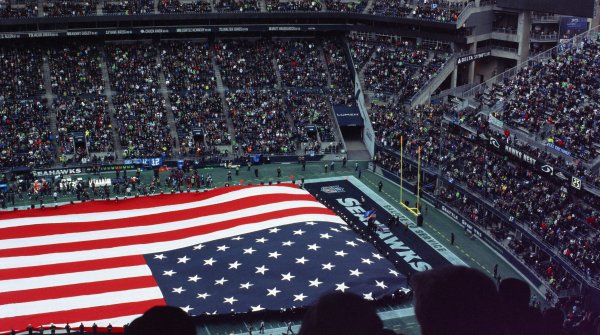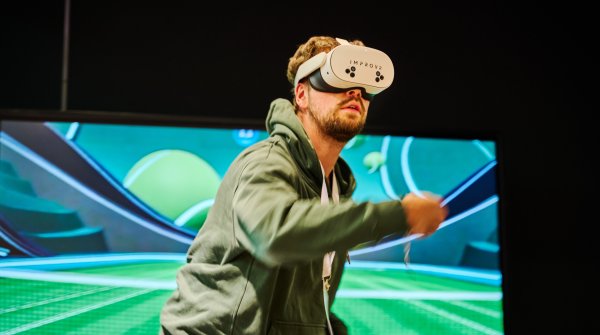SportsTech: The smart winners
Faster, higher, stronger. The history of modern competitive sport began more than 100 years ago with this Olympic motto. Today, in the 21st century, it could also mean: smarter, safer, more connected. Because technology, from smartwatches to artificial intelligence apps, now plays a paramount role for amateur athletes and professionals alike.
ISPO.com explains why, when it comes to sports tech, the following applies today: If you don't train smart - you lose.
These days, cyclists would rather sit on a folding bike than forego technology for measuring performance and other gadgets on their tours. And most joggers would rather run barefoot than leave their fitness bracelet or smartwatch at home. The choice is immense. New, clever gadgets appear month after month - from the Hövding bike airbag, which saves the helmet, to the Moofit Bluetooth, a bike trainer that clips onto the bike hub, to the smart swimming goggles Form Smart Swim Goggles, which display all performance data in the visual image.
And the smart FITGuard mouthguard measures the force exerted on the head in the event of a collision and displays it via an LED signal from green to red. This is intended to prevent late effects from concussions. Corona has only fueled the inventiveness of developers. Apple's property finder AirTags, which can be clipped under the bicycle saddle as an anti-theft device, are just one current example. There's more to come!
While studios were closed due to the pandemic, millions of people around the world discovered a new gym - their own living room. "The workout revolution is likely to stick around," oracles the Washington Post. That's because 59 percent of U.S. residents say in a survey that they plan to continue working out at home after Corona, rather than returning to the gym.
Analyst Lexi Sydow of app specialist App Annie is also convinced: "In the new normal of 2021, home will remain the epicenter for our social lives, work, and wellness." Modern technology and artificial intelligence make it possible - from the booming indoor cycling trainer Peloton, which counted 164.5 million workouts in 2020, to the sweaty Nintendo Switch fitness game Ring Fit Adventure. Those who train with online courses such as Adidas Training by Runtastic, with the Ratiopharm Back School or with Cyberobics also save a lot of time compared to the gym - and are directly back home with their family after the last exercise.
Apple launched its first smartwatch in 2015. At first, the Watch flopped - because hardly anyone was interested in making calls or writing messages on their wrist. Only with the focus on fitness and health came success. In the meantime, smartwatches and fitness bracelets have become an indispensable part of athletes' everyday lives.
In product tests, the Apple Watch and the Garmin Forerunner 245 Music come out on top - no other watches or wristbands measure distance covered, pulse or calories as accurately as the two test winners. More and more fitness watches also offer a medically approved ECG. And Apple or Samsung already have the next generation of sensors in the works - for blood pressure, blood sugar or pregnancy, for example.
Augmented reality glasses that guide joggers on the right path or that superimpose a virtual trainer with precise instructions - the future has only just begun here. And who knows what else awaits us? For the first time, San Francisco-based digital agency AKQA has hired an artificial intelligence to develop its own new sport. "We asked ourselves, what happens when AI invents a new sport?" reveals AKQA. And out came Speedgate, a spectacular mix of rugby, soccer, American football and handball
The company fed its software with data from 400 sports and 7,300 rules. Machine learning created suggestions for 1,000 entirely new disciplines. "We were shocked at the absurd and sometimes dangerous sports the AI came up with," reveals creative director Whitney Jenkins. Ideas included Frisbee with exploding discs, ice hockey with four pucks and four goals, stick basketball, high-wire football between two hot air balloons, handball chess on unicycles, or pirate canoeing, where the winner has to sink the opponent's boat. Speedgate is now played in official tournaments.
And AI does even more. It helps athletes like Roger Federer and Serena Williams extend their careers into their 40s or beyond. And it helped make Eliud Kipchoge of Kenya the first person in the world to run a marathon in under two hours.
Fitness and health apps have also experienced a tremendous surge, especially thanks to Corona. Apps ranging from YogaEasy to the world's most successful women's fitness app Sweat to the "digital sherpa" Bergfex are recording record downloads. The variety, as well as the benefits, are enormous, according to analysts at Grand View Research: "Fitness apps use artificial intelligence, machine learning and other technologies to provide personalized fitness programs to their customers." Germany is surprisingly far ahead in this regard. After all, one of the world's highest increases in spending on fitness apps came from Good Old Germany in 2020 - with an increase of 60 percent to around €82.3 million.
